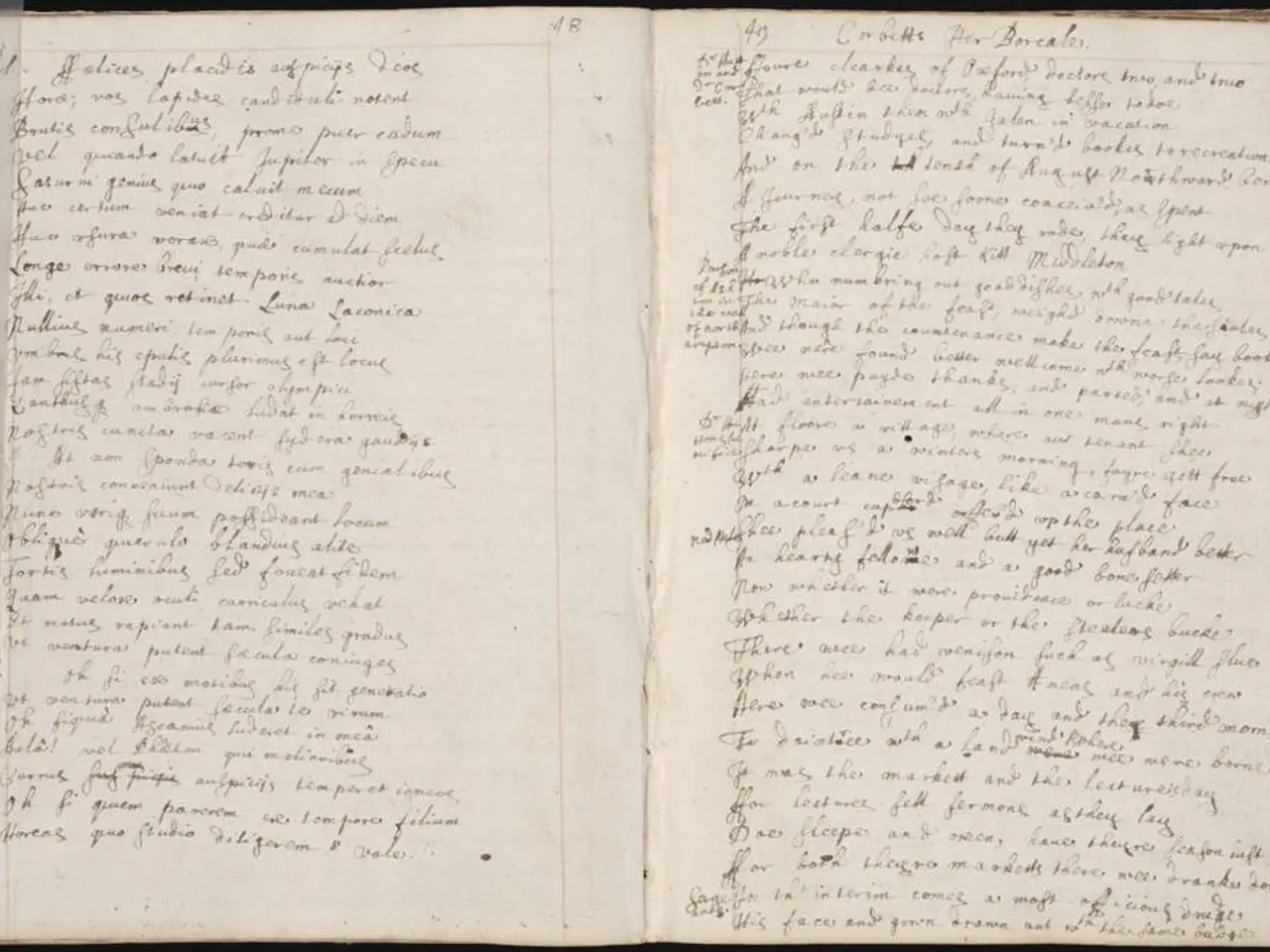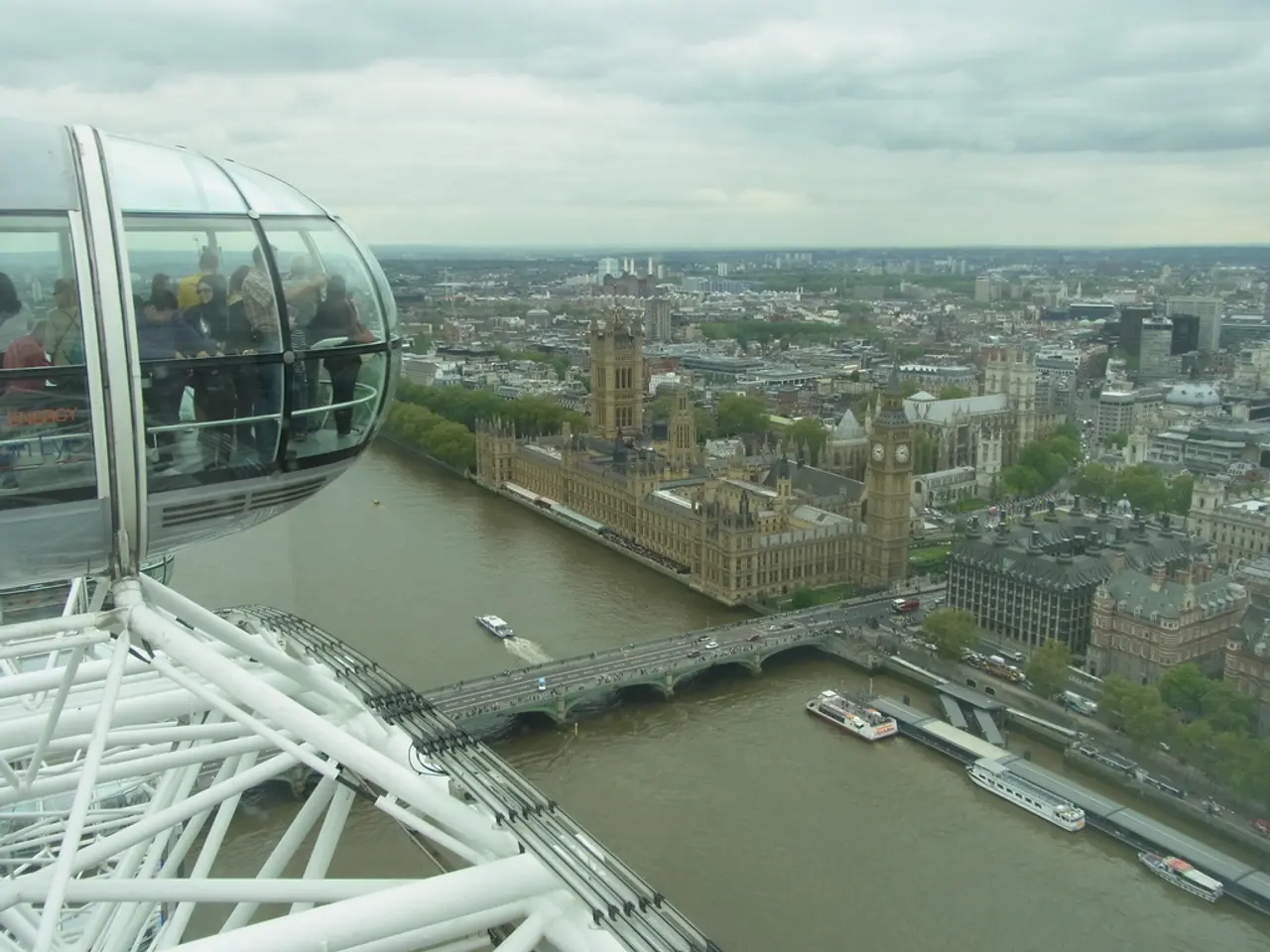Empowering Movie Stars Through Psychology Writing: Unveiling Crucial Advantages
In the ever-evolving world of cinema, the demand for nuanced and diverse narratives has never been greater. This shift is evident in initiatives like the Mental Health Storytelling Initiative, which demonstrates the industry's commitment to more intricate portrayals of mental health.
This new wave of storytelling is not only reshaping the way stories are told but also the way characters are developed. Movies such as The Matrix and Black Swan, with their meticulously crafted psychological narratives, serve as prime examples.
The exploration of varied mental health experiences is being driven by this demand, with screenwriters delving deeper into the human psyche to create authentic and relatable characters. Collaborating with mental health professionals from the outset can enrich scripts, lending authenticity and depth to character portrayals.
Psychological hacks for screenwriters, such as taking breaks to gain fresh perspectives, reading dialogue aloud to catch pacing and awkward phrasing, isolating specific elements like character motivation during revisions, and using structured checklists to ensure character arc consistency and emotional clarity, are becoming increasingly popular. These techniques improve script polish and emotional impact, enhancing character development by making dialogue and arcs more authentic and clear.
Actors, too, are adopting new methods to embody their characters more authentically. Method acting, which involves actors identifying deeply with their characters through techniques like affective (emotion) memory and perezhivanie (re-living emotional experiences), is one such approach. This method impacts character development by encouraging actors to explore the authentic inner emotional life of their characters, which heightens the depth and believability of performances.
Stream of consciousness writing techniques, such as direct and indirect interior monologues, are also used by screenwriters to reveal characters’ inner thoughts and feelings in a raw or filtered way. This technique enriches character development by presenting unfiltered or layered psychological states, encouraging actors to interpret complex internal perspectives in performance.
Hypnosis and psychological self-work for writers can help break writer’s block, unblock creative flow, and deepen the writer's emotional connection to their characters. This allows for more authentic character development in screenplays by enabling writers to access repressed or complex emotional material more freely.
The intense portrayal of psychosis and societal impact in Joker, for instance, was instrumental in earning Joaquin Phoenix numerous accolades. Akira Kurosawa's films Ran and Ikiru show how psychological human experiences can be central to a narrative. Joker provides a striking example of psychological writing, delving into Arthur Fleck's vulnerabilities, societal rejection, and mental health challenges.
Success stories from films like these help both emerging and established screenwriters see the value of character-driven narratives. As society progresses towards greater mental health awareness, screenplays reflecting these societal shifts will resonate deeply with audiences. It's essential to ensure that the character's psychological growth is clear in the screenplay to maintain audience engagement and understanding.
Emerging technology in the film industry will likely enhance psychological storytelling, offering opportunities to visually represent psychological states. However, striking the right balance between character complexity and narrative clarity remains a significant challenge. Exploring psychology within screenplays opens new creative possibilities for both writing and acting.
In summary, the fusion of psychology and storytelling is transforming the film industry, improving both the written characterization and the embodied acting choices. Techniques like psychological hacks for screenwriters, method acting, stream of consciousness writing, and hypnosis/self-work for writers collectively bridge this gap, enhancing both the written and performed aspects of cinema.
Note: This article does not contain any advertisements. The use of the code 5OFFNOW is not included in the final article.
References:
- Psychological Hacks for Screenwriters
- Method Acting
- Stream of Consciousness Writing Techniques
- Hypnosis and Psychological Self-work for Writers
The transformation in the film industry facilitated by psychology is evident in the exploration of varied mental health experiences, as seen in the meticulous portrayals of psychological narratives in movies such as The Matrix and Black Swan. Screenwriters collaborate with mental health professionals to enrich scripts, ensuring authentic and relatable characters in the realm of 'movies-and-tv' entertainment.
The growth of psychological storytelling is driving a new wave of character development, with techniques like stream of consciousness writing, method acting, and hypnosis/psychological self-work for writers collectively enhancing both written and performed aspects of cinema, thereby enhacing the 'coverage' in the entertainment sector.








